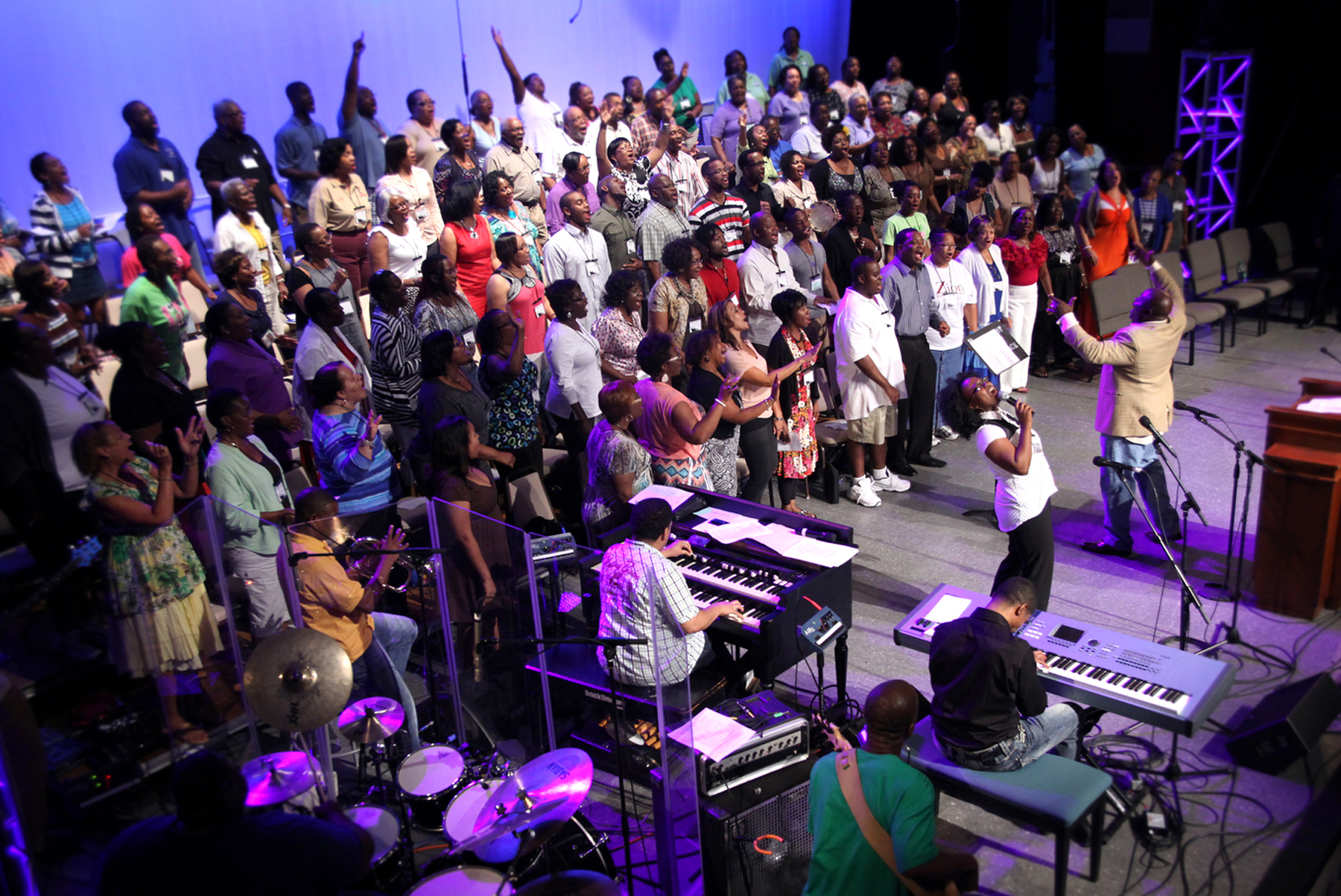
NASHVILLE (BP) – When messengers see more ethnic diversity on committees at this year’s SBC annual meeting, they shouldn’t be surprised. As a report by the convention’s Executive Committee puts it, such diversity long has been “the expressed desire of the Southern Baptist Convention.”
More than half of SBC President J.D. Greear’s appointments to 2020-21 committees are non-Anglo, as is 37 percent of the Committee on Nominations elected by messengers at the 2019 SBC Annual Meeting. Those are just two examples of how diversity has increased since the convention began to implement recommendations from a 2011 Executive Committee report suggesting a variety of new measures to expand non-Anglo participation. Among those measures was annual publication of information on ethnic participation on committees and at SBC entities.
“There has been an increase in upper-level” ethnic participation, said EC chairman Rolland Slade, who is African American. “Doors have just been opened.”
The 2011 recommendations stemmed from an SBC motion two years earlier by Massachusetts pastor Paul Kim, who is Korean. “When I went to the SBC annual meetings,” he said, many ethnic groups “were not represented. So I began to pray and to feel burdened.”
Realizing most SBC calls for increased diversity over the previous half century had come in resolutions (which express messengers’ views without taking a specific action), Kim decided to make a motion asking the EC to take action. His 2009 motion requested a study group to examine “how ethnic churches and ethnic church leaders can be more actively involved in serving the needs of the SBC through cooperative partnership on the national level.”
Robert Anderson, an African American pastor who helped lead the Executive Committee study from 2009-11, said EC members wanted to establish goals to translate the SBC’s diversity aspirations into “tangible and visible” results.
“We wanted to require our agencies to let us know about ethnic people that were working in their ministries,” said Anderson, pastor of Colonial Baptist Church in Randallstown, Md.
A progress report four years later from the EC noted that SBC committees and entities had begun to report on annual ethnic participation, and nomination forms used by the Committee on Nominations and the Committee on Committees had been amended to allow nominees to indicate their ethnic identities. Still, observers wondered if seemingly minor changes in reporting could make a tangible difference in SBC life.
This year’s EC diversity report suggests they may have. Between 1996 and 2015, just 3.2 percent of individuals elected to serve on the Executive Committee were non-Anglo, a figure the EC’s 2015 progress report suggested was representative of other convention trustee boards. Today, that percentage has nearly tripled. Nine percent of the EC is non-Anglo, as is 36 percent of EC leadership staff.
Overall, the SBC averaged 12.4 percent ethnic diversity per trustee board for 2020-21, according to the EC report. Individual boards range from a low of 3.9 percent ethnic diversity to a high of 21.6 percent.
Among all Southern Baptists, at least 10.2 percent (nearly 1.5 million) are non-Anglo, according to a 2020 BP report. On just three of the convention’s 12 trustee boards does non-Anglo representation fall below that mark for 2020-21.
Diversity among SBC leadership is important not only to reach all ethnicities with the Gospel, Kim said, but also to sustain the Cooperative Program, the convention’s unified channel for missions giving.
“If you want to have Southern Baptists strong, you have to have all Southern Baptist churches come together, especially ethnic churches,” Kim said, “because most ethnic pastors don’t know Southern Baptist life.” Unless ethnic churches increase their knowledge and trust of the SBC, “they won’t contribute through the Cooperative Program.”
The need to sustain CP and reach America’s diversifying population magnifies the importance of fixing Southern Baptists’ remaining weaknesses related to race and ethnicity. Among those weaknesses:
- Despite multiple Baptists of color serving as entity vice presidents, the SBC has never elected a non-Anglo entity president.
- In recent years, some SBC entities have reduced their number of non-Anglo employees, Kim and Anderson said.
- At the end of 2020, just 20 of the International Mission Board’s 3,558 international missionaries were African American, according to the IMB’s 2021 CP Ministry Report.
Fred Luter, the only African American to serve as SBC president, said political tensions have made the past four years “some of the most difficult times” to be Black in the SBC. His comments came in a YouTube series hosted by Dhati Lewis, president of Send Network with the North American Mission Board, who is among the highest-ranking Black employees at any SBC entity.
Alan Cross, a California pastor and longtime racial reconciliation advocate, said a key to further progress is for all Southern Baptists to form relationships with fellow Southern Baptists of other ethnicities. The need for diversified relationships struck him with particular force when an initial report from the 2018 Committee on Nominations recommended Anglos for 67 of 69 open committee and trustee positions.
The ethnically lopsided nominations likely occurred because Committee on Nomination members “pick their friends. They pick people they know,” Cross said. Though unintentional, the lack of diversity highlighted the need for each Southern Baptist – especially those serving on committees – “to know people from diverse backgrounds.”
Progress “shouldn’t go slow,” Cross said. “Time is not an excuse at this point. It’s 2021.”
Still, Anderson rejoices in the progress that has been made. He cited an increased volume of Bible study curriculum for ethnic churches produced by Lifeway Christian Resources, more ethnic minorities in SBC leadership and an expanded annual Black Church Leadership and Family Conference funded by convention entities. Yet perhaps the most vivid reminder of progress will come when Baptists look around at the SBC annual meeting in Nashville next week.
“All you’ve got to do is count the faces you see when you go to the convention,” Anderson said. There are “many more” ethnic minorities present now than there were 25 years ago.
















